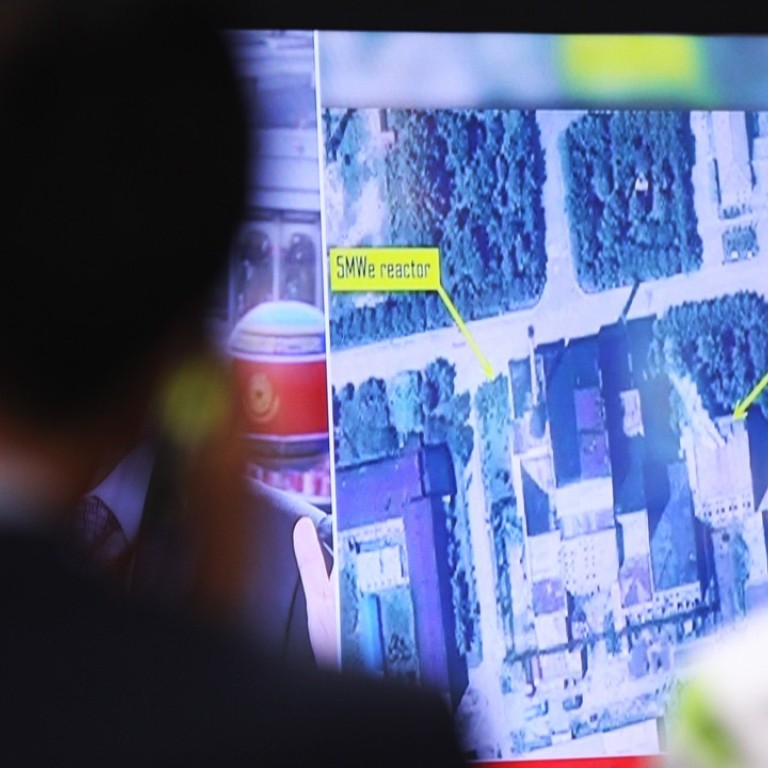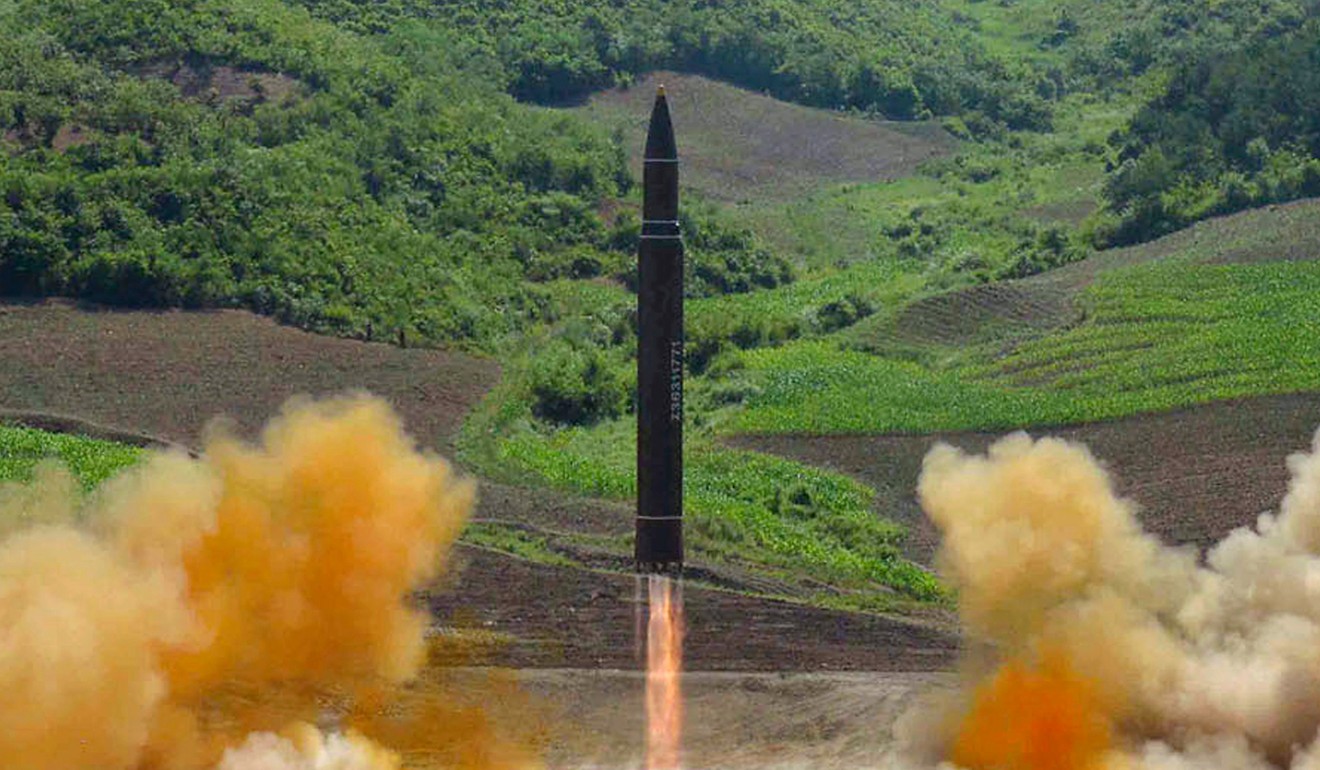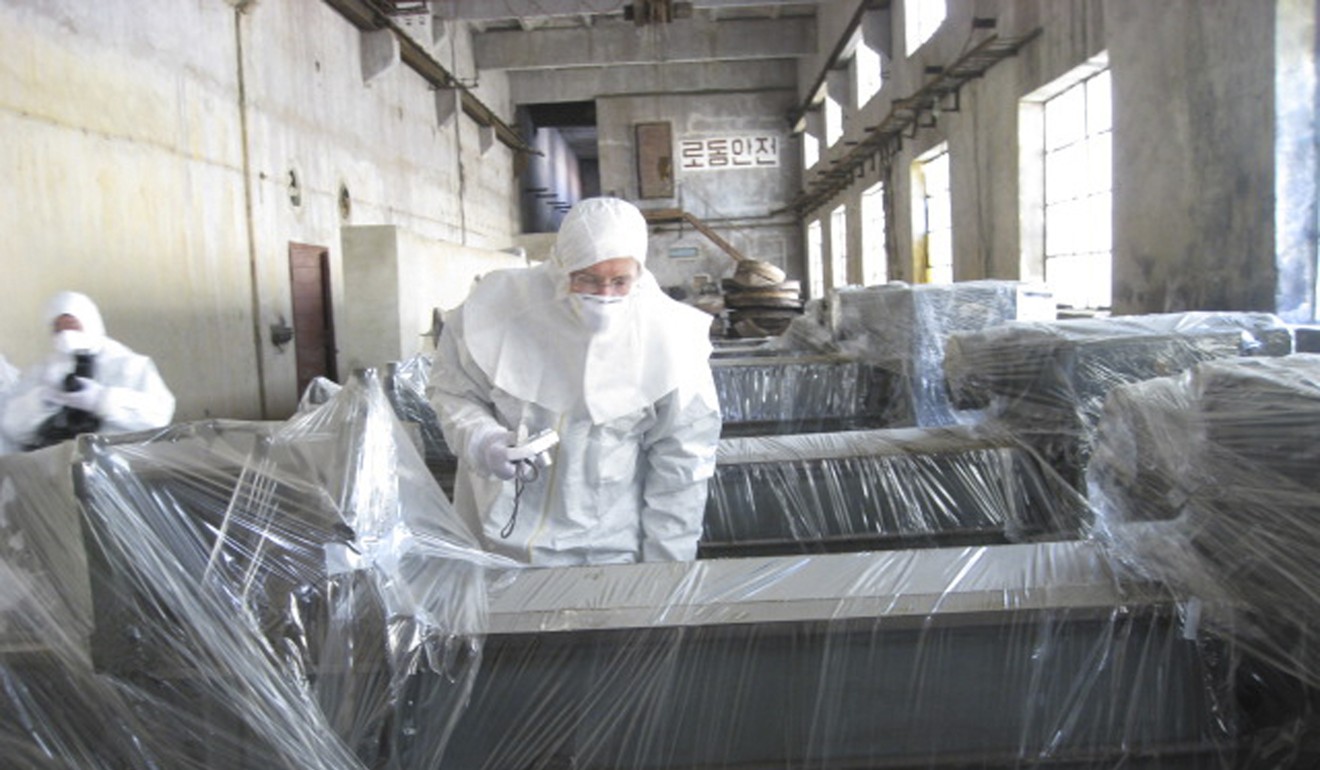
US and North Korea’s long history of distrust could prove main stumbling block on road to nuclear-free peninsula
Despite declarations of goodwill between Kim Jong-un and Moon Jae-in, the North is unlikely to relinquish its arsenal until it believes American guarantees
Building sustainable mutual trust between Washington and Pyongyang will be the key to ensuring that North Korea lives up to its pledges to denuclearise even if Beijing plays a role in future inspections, analysts have warned.
But neither side has yet to provide a clear definition of denuclearisation or detailed plans as to what that would entail.
Washington and Seoul want “complete, verifiable, irreversible dismantlement”, also known as CVID, of the North’s nuclear programme – not just the closure of its missile launch centres and an end to nuclear tests.
But Pyongyang, may want to see the removal of US strategic assets from the South or even the complete withdrawal of all US troops from the peninsula.
Zhao Tong, from the nuclear policy programme at the Carnegie-Tsinghua Centre for Global Policy, said any security guarantees provided by the US could easily be reversed so Pyongyang may choose to hold on to its nuclear weapons in the short term.

“I don’t think North Korea is willing to give up its nuclear weapons in the near future. It would want to keep its nuclear capability and secure its deterrent ability for a while,” Zhao said.
“We must note that some of the measures to secure Pyongyang’s regime, such as the withdrawal of US strategic assets or even US troops from the South, are all reversible measures.
“There is no way Washington can provide a complete, credible and irreversible security guarantee to Pyongyang.
“Unless the two countries build trust in the long term after years of mutual engagement, it is hard for Pyongyang to completely give up its nuclear weapons.”
Zhao had earlier said that China’s foreign minister Wang Yi, who is visiting North Korea on Wednesday, may express Beijing’s interest in taking part in the inspection or the dismantlement of Pyongyang’s nuclear arsenal.
But it will be very difficult to implement a fully verifiable disarmament process.
Zhao argued that the North’s nuclear facilities could easily be camouflaged as ordinary industrial facilities across the country.
A South Korean diplomatic source, who took part in the six-party talks in 2003, reinforced the point, saying: “We don’t know how many nuclear warheads nor how much uranium North Korea possesses.”
They also noted that Pyongyang’s refusal to accept inspections over the past decade had made it even more difficult to fully guarantee the credibility of the verifying process.

The International Atomic Energy Agency (IAEA) agency last carried out an inspection of North Korea’s nuclear facilities in 2009.
The inspectors were expelled in April of that year and the North declared that its nuclear weapons programme had been reactivated.
But Paik Hak-soon, a director of the Centre for North Korean Studies at the Sejong Institute in Seoul, said while he acknowledged that CVID was a complicated process, he believed that Kim’s desire to denuclearise was “sincere” and argued that the public should not be overly pessimistic.
“The process may be complicated and time-consuming, but the will of the leaders is very strong this time.
“The fact that Pyongyang and Washington are having bilateral talks proves this to be true. Throughout history, when superpowers want to actually solve a problem, they have always preferred bilateral over multilateral talks.” Paik said.
“As there is a strong willingness from the leaders, the pace of transition may be faster than our expectations. The possibility of complete denuclearisation still remains a feasible plan.”

